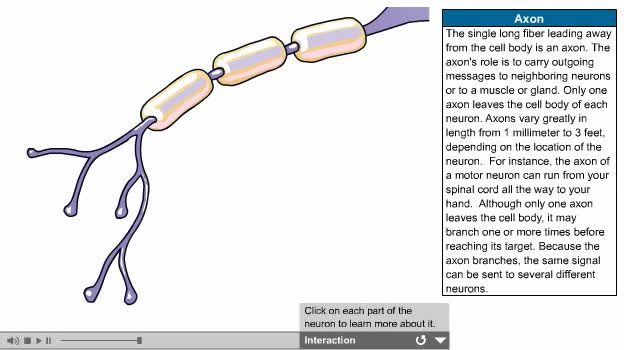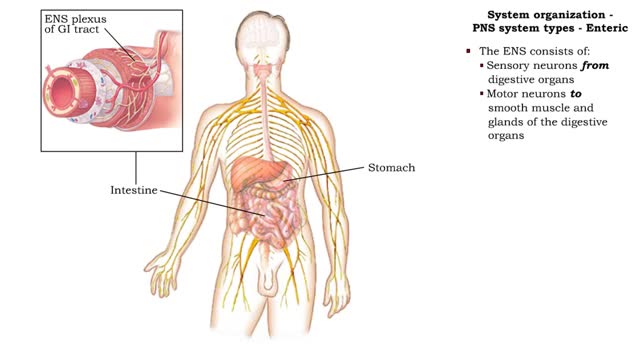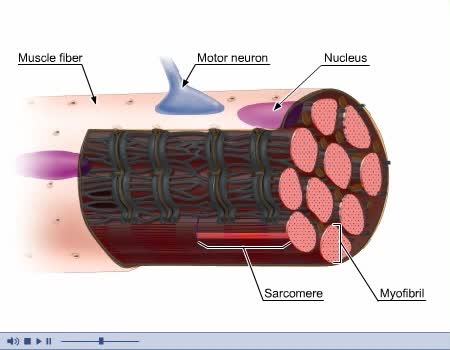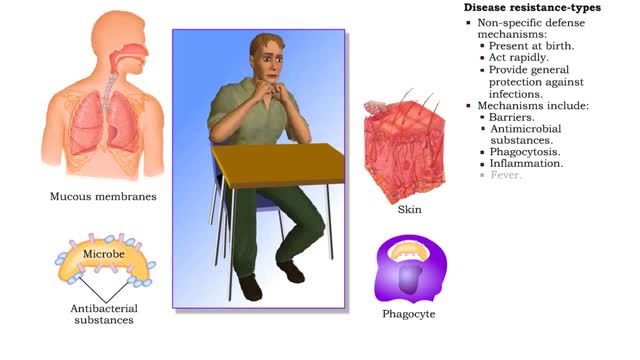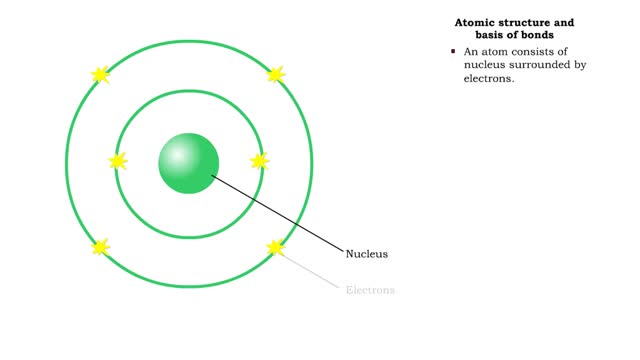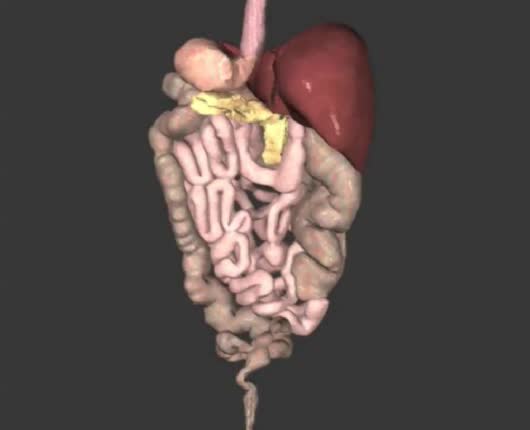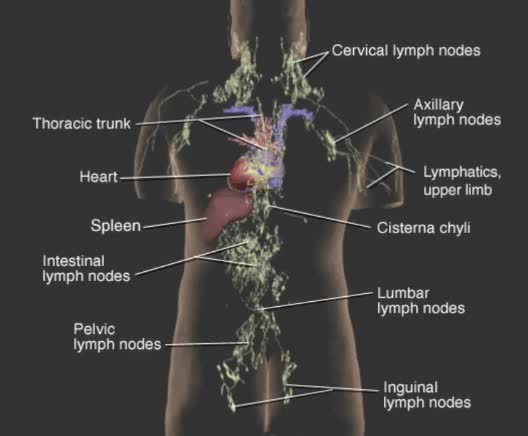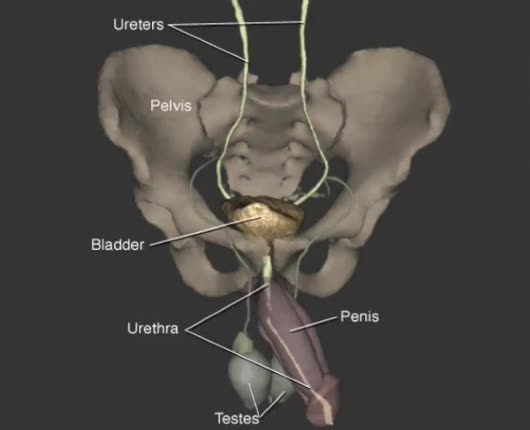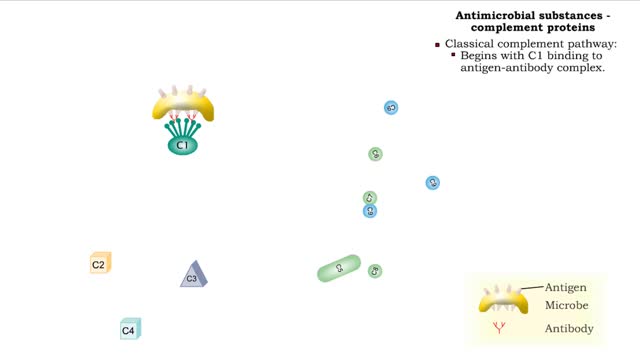Search Results
Results for: 'PPM system types'
By: Administrator, Views: 15277
There are several types of neurons, three of which are: Motor neurons, Sensory neurons, Interneurons. The nervous system is usually described as having two interconnected divisions: the central nervous system (CNS) and the peripheral nervous system (PNS). CNS: Includes the brain and spinal...
System organization - PPM system types (Somatic, Autonomic & Enteric) and Reflex arc types
By: HWC, Views: 11893
• The PNS consists of all nervous tissue outside of the CNS. • It is divided into three functional components: • Somatic nervous system (SNS) • Autonomic nervous system (ANS) • Enteric nervous system (ENS) • The SNS consists of: • Sensory neurons from skeletal muscles ...
By: Administrator, Views: 14524
Three basic types of muscles: - Skeletal - Smooth - Cardiac Composed of striated or smooth muscle tissue and classified according to their functions and appearance. Skeletal Muscle: - Also known as voluntary or striated muscle. - Controlled by the conscious part of the brain and attach...
Types of disease resistance: innate defenses & immunity
By: HWC, Views: 11985
Our immune system protects us and helps fight off disease. Microorganisms, small microscopic organisms, and viruses are everywhere. Ever thought about how many are on that door you just opened? Many microbes and viruses can cause disease and are termed pathogens. Plants and animals have what i...
Bond types - Atomic structure and basis of bonds
By: HWC, Views: 12079
• Chemical bonds are fundamental to the structure and function of many types of molecules, such as proteins, carbohydrates, lipids, nucleic acids, gases, salts and water. ■ These molecules are composed of atoms that are held together by three different types of bonds. • The three types ...
By: Administrator, Views: 14946
Digestive system contains both primary and accessory organs for the conversion of food and fluids into a semiliquid that can be absorbed for the body to use. Three main functions: - Digestion - Absorption - Elimination With aging: - Digestive system becomes less motile. - Glandular sec...
By: Administrator, Views: 599
Blood and lymph are two of the body's main fluids and are circulated through two separate but interconnected vessel systems. Blood is circulated by the action of the heart, through the circulatory system consisting largely of arteries, veins, and capillaries. Lymph does not actually circulate. ...
By: Administrator, Views: 1602
The urinary system: kidneys, ureters, bladder, and urethra with expanded view of a nephron and the urine-filled space within a bladder. Urinary system: two kidneys, two ureters, one bladder, one urethra. Also called the excretory, genitourinary (GU), or urogenital (UG) system. Produces, stor...
Types of antimicrobial substances (interferons & complement protein)
By: HWC, Views: 11732
• Found in blood and interstitial fluids. • Discourage microbial growth. • Include interferon and complement proteins. • Produced and released by virus-infected lymphocytes. • Enter new cells and inhibit viral replication. • Act against a large variety of viruses (non-speci...
Advertisement



